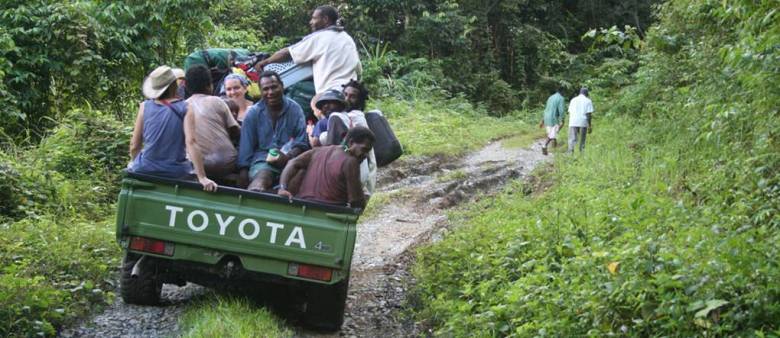The context here is the mountains, swamps, and jungles of Papua New Guinea. And the course of study is Biblical Greek Grammar. But the reasons we need to develop a mobile phone correspondence course for follow-up after an initial course may fit your context as well.
Here are 6 reasons we need to develop this course…
- “I know enough Greek to be dangerous.” We are currently compounding this unfortunate situation. Every two years, we run an Intro to New Testament Greek course for PNG Bible translators followed by an Intro to NT Greek Exegesis course. However, for the past four years, the exegesis course has not run for one reason or another. We often don’t have enough students registered to run the course, and those who are interested are not prepared enough after the first course to enter the second. But if we don’t run the exegesis course, we might as well not start them off. It’s too dangerous to know just a little Greek! Many a false claim have have been made by those who know just enough Greek to think they know what they’re talking about.
- 6 weeks is not enough to cover a one-year introductory course. The follow-up exegesis course is intended to have the first year grammar course as a prerequisite, but the 6-week intensive course has been progressing at a slower and slower pace over the years in order to help the participants be more successful. We think this is good. It’s better that they learn well what we cover rather than to try to keep up with an insane pace and get through the whole textbook with little understanding. A follow-up correspondence course could help the students finish the first year grammar.
- “Train and dump” is culturally inappropriate. Papua New Guinean leaders in the Bible translation movement are explicitly asking for something that goes beyond our traditional training system. Learning within the Melanesian context means that it best happens when connected to real life practical experience and application. Classroom learning when divorced from application of that new knowledge and skills in practical experience will not be truly understood or utilized. A correspondence course could help bridge the gap between classroom instruction and application in the real world of village life and the work of translation.
- Relationships are key. Papua New Guinean learners don’t simply want their heads filled with knowledge. They desire for mentor relationships with those who care about them as real people. Being real people means that they are connected to many other people with a history and a story to tell. This goes beyond the particular academic subject that may have brought student and mentor together in the classroom. Thus, regular communication in a follow-up correspondence course would not be limited to passing the questions and answers back and forth. It would also be an opportunity for relationship, storying, and encouragement.
- We need to evaluate our training effectiveness, but we often do not have contact with course participants after the final day of class. If we run a follow-up correspondence course, we not only increase our chances of maintaining contact with the participants in order to determine the long-term effectiveness of the training, the continuing involvement in the subject matter will substantially boost the likelihood that our training will be proven effective.
- Mobile phones are used in remote PNG villages. Communication is generally quite poor in the country, but mobile phone service is quite good and on the rise even in many remote areas of the country. Correspondence by post, email or internet are not viable options for many people in Papua New Guinea. Many candidates for this course may live most of the year many hours or even days from a post office, much less an internet connection. However, in the past four or five years, mobile phone service has been heavily marketed to the needs and situation of the 80% rural population in the country. The digital network service is constantly expanding, and it is not unusual to find charging and balance top-up stations located off the beaten path even in remote villages.
Not everyone has access to mobile phone reception in PNG, and in such cases, HF radio scheds or communication via an intermediary at a regional center may be more appropriate. Others, on the other hand, may have access to email and internet.
Therefore, I am hypothesizing that a follow-up correspondence course could be designed with the limitations of mobile phone text messages and radio scheds in mind. This would not preclude others, however, from opting for the convenience and added benefits of email, the Internet, and social media if they have the capability.
Has anyone done anything like this? Any thoughts?

